Back in April of 2016 news.Bitcoin.com reviewed the Openbazaar platform the first day the marketplace launched. Since then the application has come a long way with many updates, new features, and the platform most definitely has more users. This week we decided to give the Openbazaar 2.2.5 client a test run and see how much has been improved.
Also read: Shapeshift CEO Responds to Wall Street Journal Laundering Claims
Testing Out the Openbazaar Client 2.2.5
If you are into cryptocurrencies you’ve likely heard about the open source marketplace called Openbazaar. The project has been around for a couple of years now and has greatly improved since we first reviewed the platform back in 2016. Since then the application has added a native wallet, cryptocurrency trades, Tor integration, better search engines, and more. We decided to give Openbazaar’s 2.2.5 version a test to see all the latest features and see what kind of wares are lurking in the corners of this decentralized e-commerce portal.
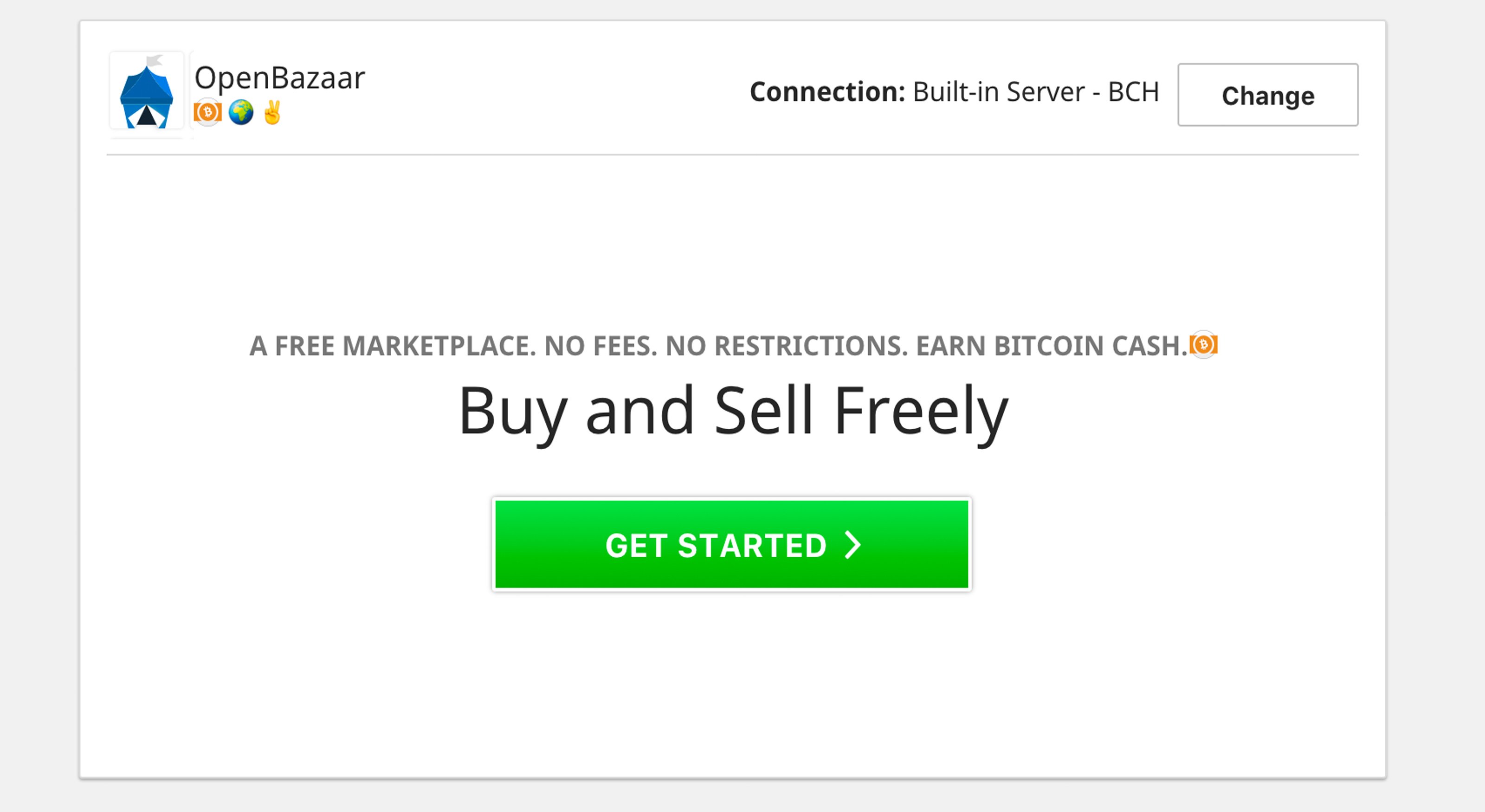
The first thing we did was download the Openbazaar 2.2.5 client for the Mac operating system but the program is also available for Windows, and Linux as well. With a good internet connection, the download doesn’t take long at all (about 100MB) and the installation is fairly quick as well. After the install is complete, we load up the program and Openbazaar asks the user to agree to the terms of service. Following the agreement page, the platform asks the user to set up a default cryptocurrency wallet and the user has to choose between three digital assets. The choices include bitcoin core (BTC), bitcoin cash (BCH), and zcash (ZEC) and at the moment you cannot change this setting later.

Users are then asked to set up a profile where you register a name, add an optional description, an avatar, your location, and local currency. From here you can set up your store; which probably should be customized with a description of the wares you are selling, pictures, shipping address, moderation preferences, and of course the pricing of your listings. Users can also follow certain vendors and people can follow your store as well. Openbazaar also has notifications of new followers, but notifies users of order status details as well.
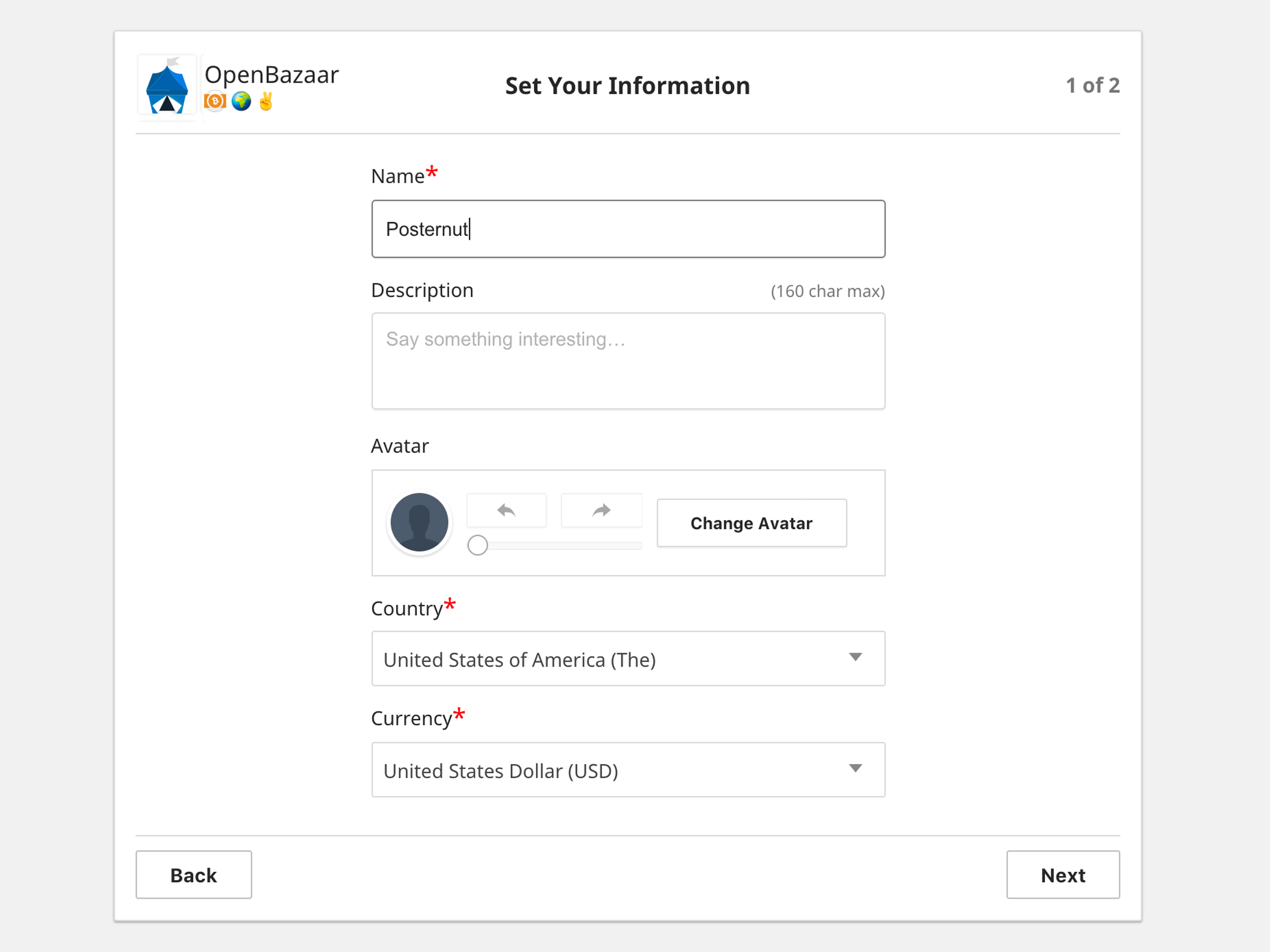
The Native Wallet and Search Engines
Another area to check out is the wallet section where it shows the funds available and the latest transactions. The wallet can send and receive and also includes a network fee toggle located in the advanced section. In the advanced section, a user can also synchronize the wallet’s transactions and show block data for debugging purposes. Other than that, the wallet is pretty basic like a traditional desktop client and does not offer any more frills.
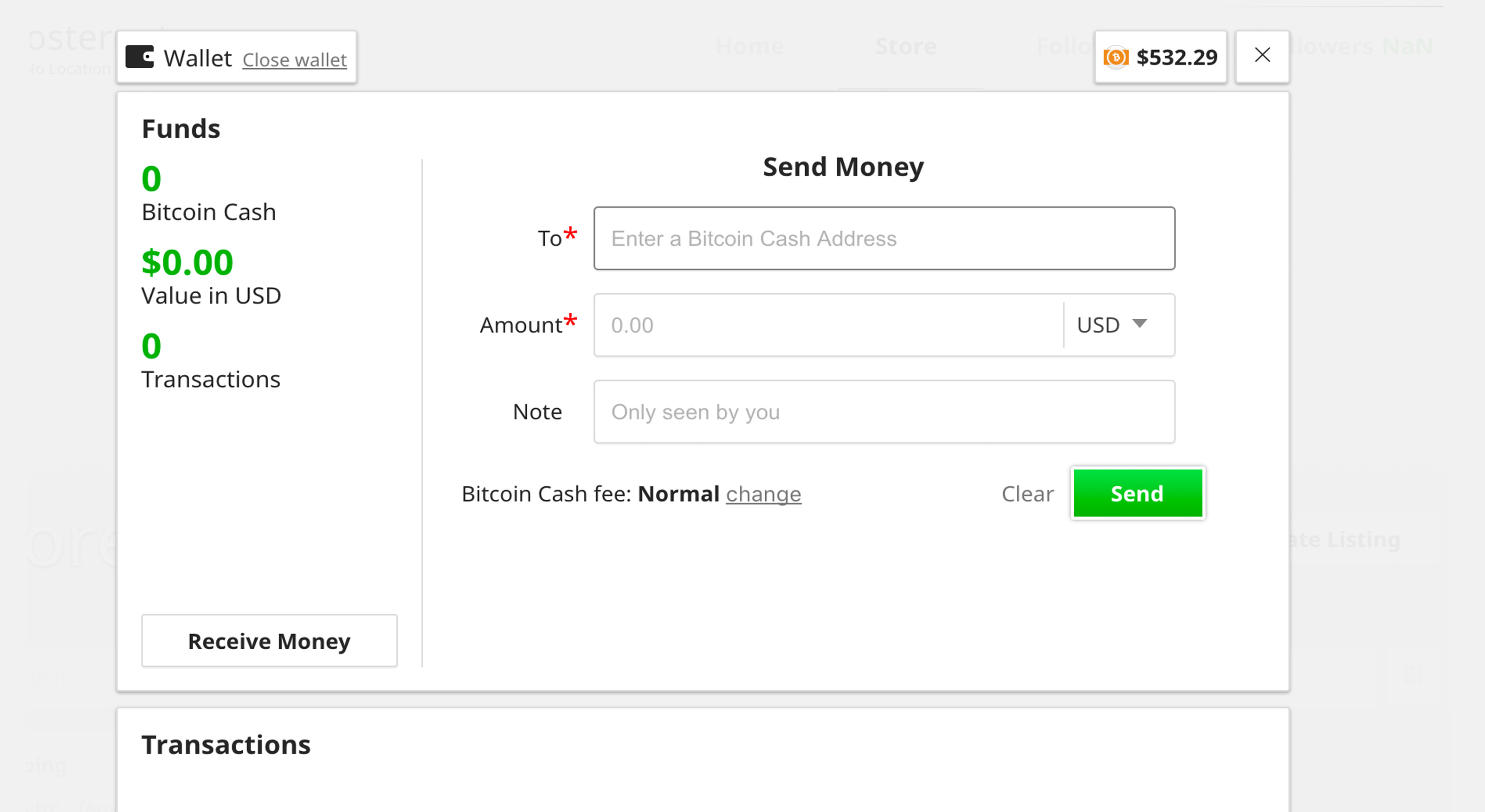
During the review, we decided to focus on what we could find throughout the listings of Openbazaar’s vendors rather than set up a store. Back when we first looked at Openbazaar in 2016, listings were far and few between and most of the products only catered to crypto-enthusiasts. That’s all changed now as the searching features have been greatly improved and there are a bunch of vendors selling wares using the platform. Openbazaar comes with two default search engines called OB1, and Blockbooth. You can add another provider for Openbazaar manually entering the URL address too. Depending on which search engine you choose, there will be a variety of different listings on each one.
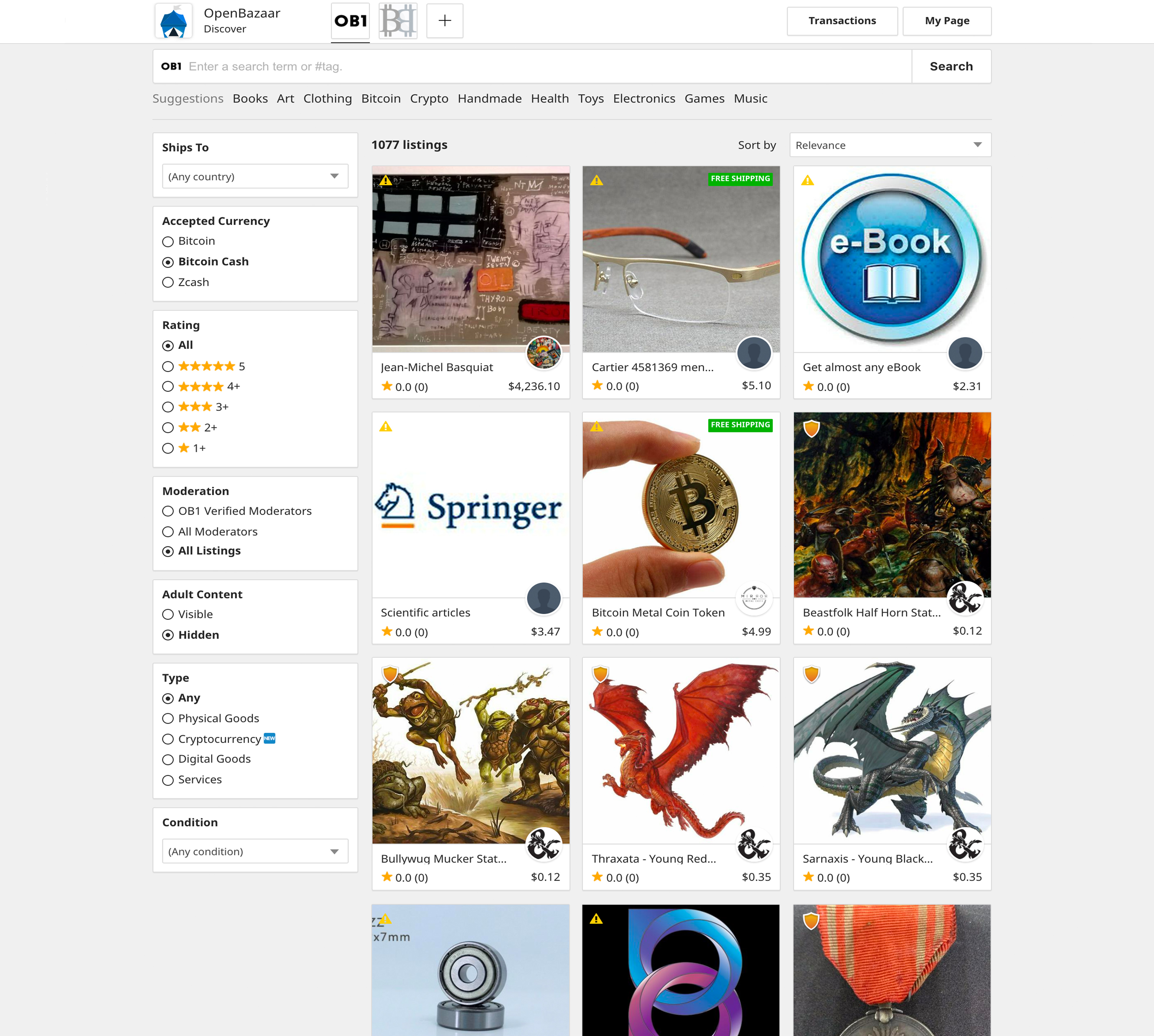
Thousands of Items for Sale Including a Slew of Black Market Products
Using the OB1 search engine, there are many items for sale including skateboard wheel bearings, stickers, old WWII metals, watches, green tea, books, handmade items, toys, electronics, and more. Listings can also be filtered by accepted currencies (BTC, BCH, ZEC), the seller’s ratings, by different moderators, adult content, whether or not its a physical or digital good, and even the condition of items. OB1 has around 1077 listings and Blockbooth has 7619 products for sale at the time of writing. As mentioned above, there are other providers as well that offer even more products if you know the vendor’s URL.
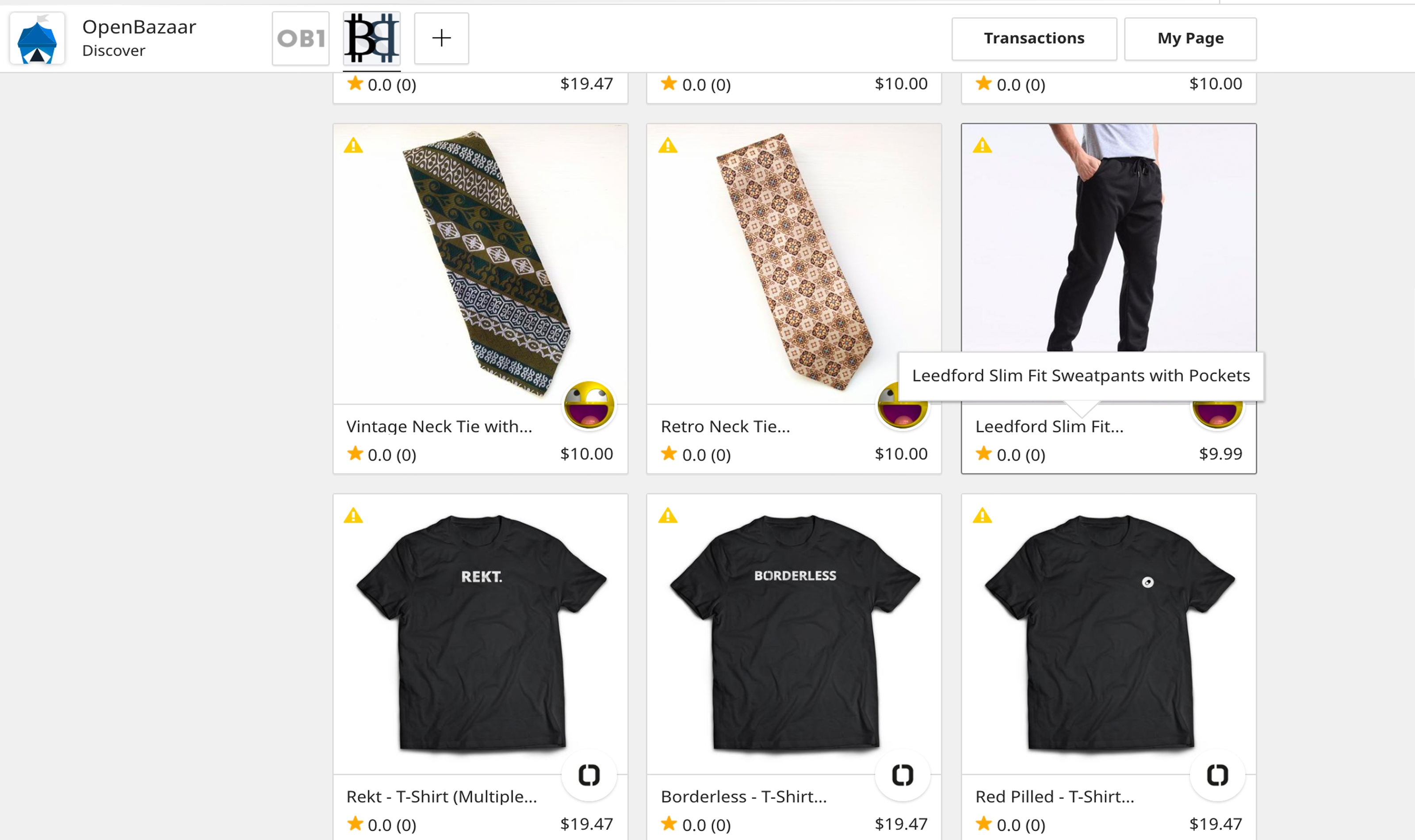
There have been a few articles recently showing how people are finding illegal drugs on Openbazaar and during our visit, we found some vendors. Now on the OB1 search engine you won’t find any drugs, but using the Blockbooth search engine, lots of listings will pop up. For instance, you can find LSD blotter tabs, multiple varieties of Kush and Sativa-flavored cannabis flower, THC oil cartridges, MDMA/Molly, Columbian cocaine, and more. You can also find a slew of pharmaceutical, natural and legal drug vendors as well. If you happen to parlay with chemical calisthenics and you want to order some of these products you probably should use Tor and a VPN.
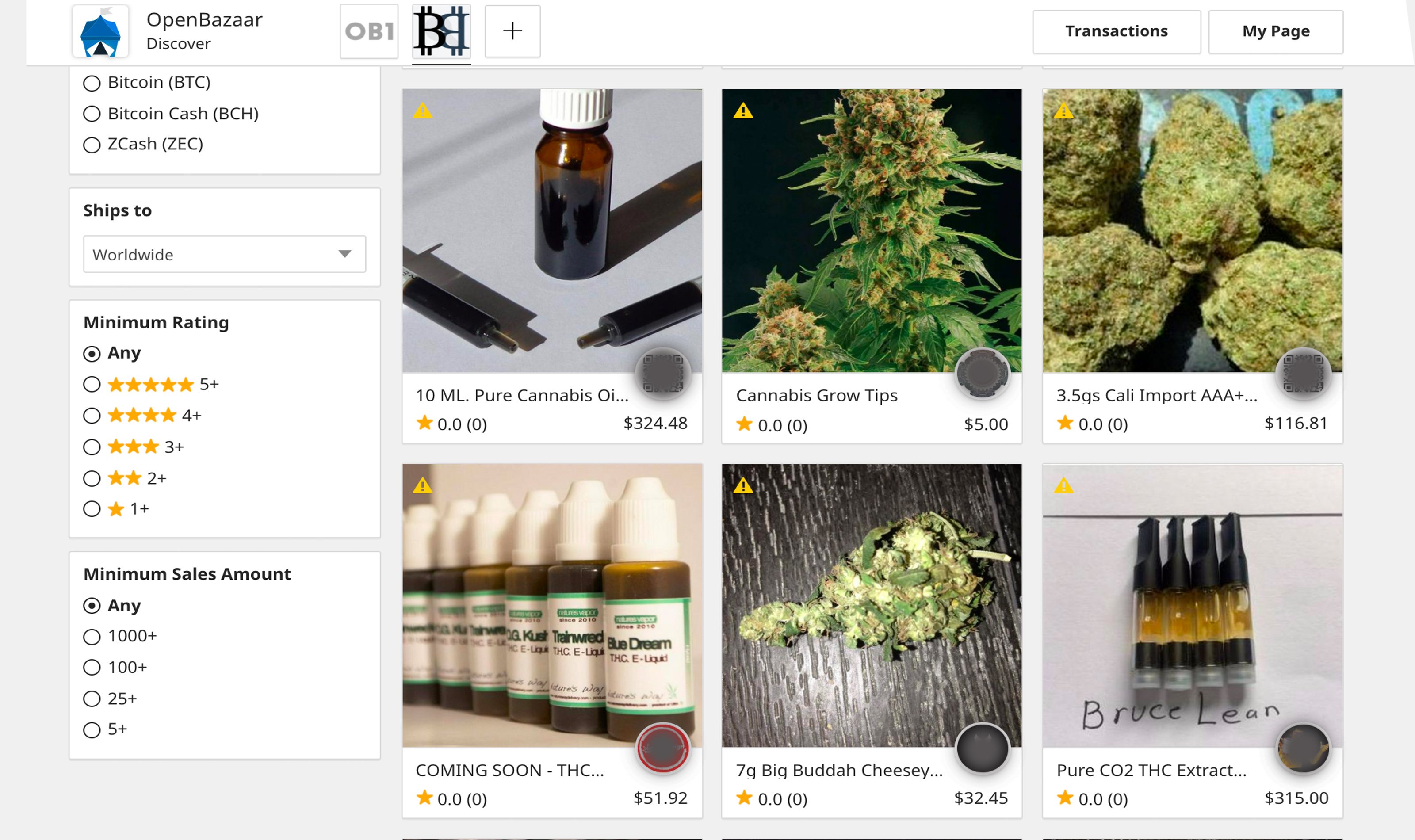
A Decentralized Marketplace, Crypto-Exchange, and the Ability to Overcome Obstacles Centralized Darknet Markets Face
Moving around and searching Openbazaar is fairly intuitive and operates very much like a social media application mixed with Ebay. Most of the features that have been added to the platform have improved the application greatly since we first tested Openbazaar two years ago. It would be nice to have a wallet that accepts more than one cryptocurrency in the future or at least offer the ability to change the default currency.
Under the hood, Openbazaar makes the process of buying and selling decentralized by offering moderators, escrow, and both multi-signature and Ricardian contract technology. As far as the illegal drug vendors, they may have more of an advantage over their competitors on centralized darknet markets like Dream, and or the Point Marketplace (T•chka). This is because not only do vendors on Openbazaar have access to Tor, a VPN, and the ability to use zcash, the platform also relies heavily on the Inter-Planetary File System (IPFS) making it much harder for global law enforcement to take down.
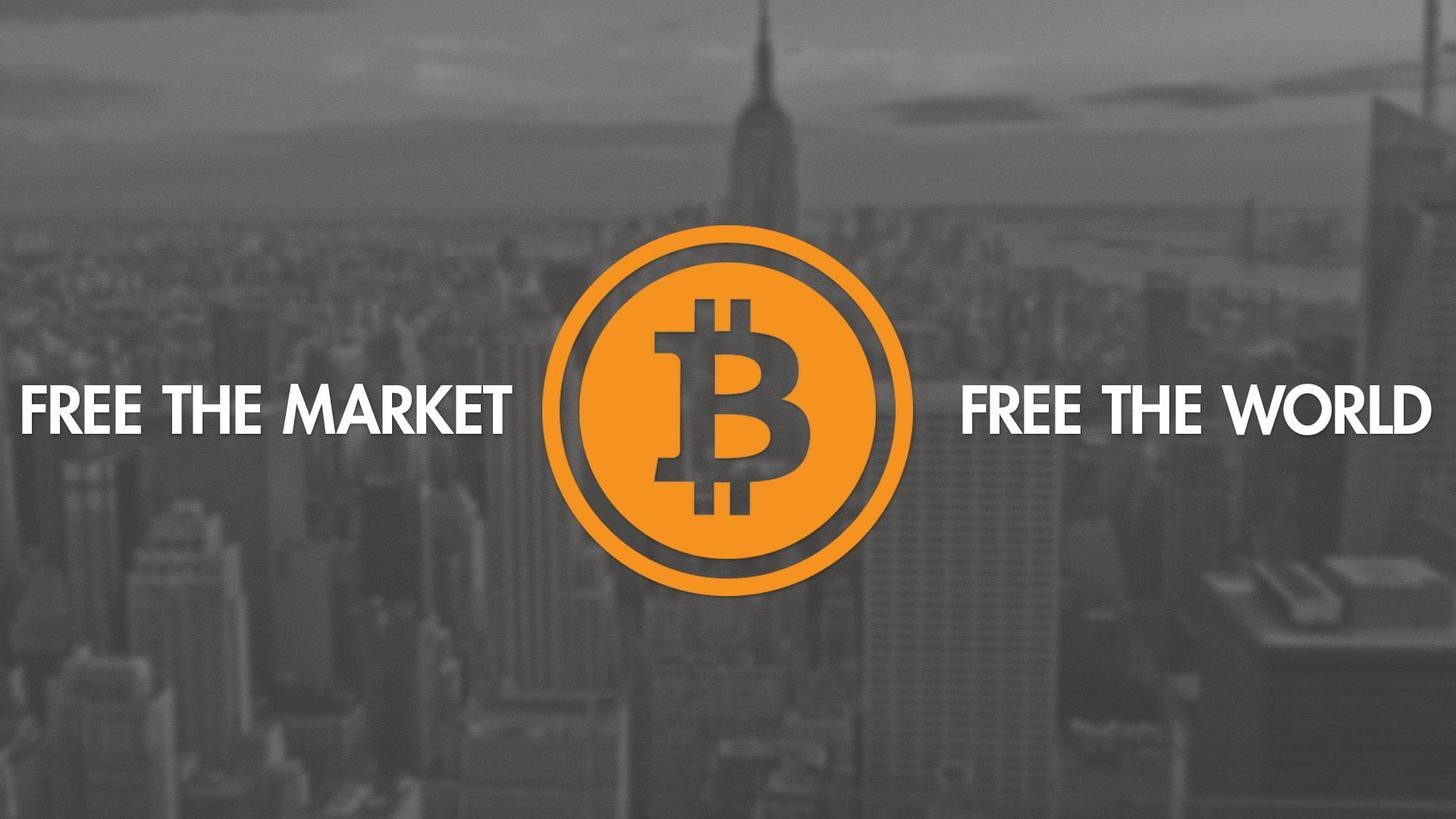
Openbazaar’s Biggest Challenge: Gaining a Significant Network Effect of Users
Another advantage Openbazaar offers is the ability to swap cryptocurrencies on the platform. Simply searching for cryptos shows a wide variety of digital assets to trade and Openbazaar doesn’t charge a fee for the swaps. This gives Openbazaar users the ability to trade without KYC and again you can use Tor and a VPN.
As far as the setbacks Openbazaar faces, the challenge will be gaining more users, moderators, and vendors. The network effect of gaining a huge user base will be a difficult task for Openbazaar to achieve, but the same could be said for cryptocurrencies. Further, the two innovative ideas would likely fuel each other in the future. The network effect will be the company’s biggest uphill battle going forward as finding the right business model to make money from the marketplace will be the easiest part.
What do you think about Openbazaar? Have you used the application? What do you think about Openbazaar gaining mainstream adoption in the future? Let us know what you think about this subject in the comment section below.
Images via Pixabay, Openbazaar, and Jamie Redman.
Disclaimer: Readers should do their own due diligence before taking any actions related to the mentioned company or any of its affiliates or services. Bitcoin.com and the author is not responsible, directly or indirectly, for any damage or loss caused or alleged to be caused by or in connection with the use of or reliance on any content, goods or services mentioned in this article.
The post Under the Tent: A Look at the Latest Openbazaar Marketplace Software appeared first on Bitcoin News.














